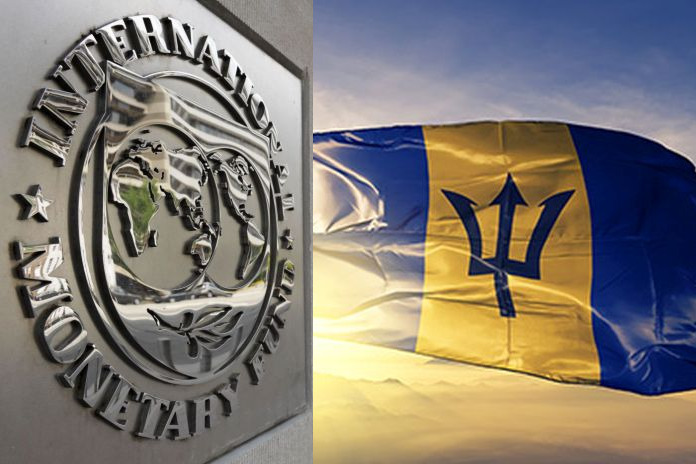- The executive board of the International Monetary Fund completed Thursday the first reviews of Barbados’ Extended Fund Facility (EFF) and Resilience and Sustainability Facility (RSF) arrangements, making available SDR 14.175 million (about US$19 million) under each facility, respectively.
- After successfully weathering a series of shocks in recent years, the Barbadian economy has recovered strongly driven by a rebound in tourism and related activities and continues expanding in 2023.
- The authorities are making good progress in implementing their updated Economic Recovery and Transformation (BERT) plan and their ambitious climate policy agenda.
USA / BARBADOS – The executive board of the International Monetary Fund (IMF) completed the first reviews of the Extended Fund Facility (EFF) and the Resilience and Sustainability Facility (RSF) arrangements. The completion of the reviews allows the authorities to draw the equivalent of SDR$14.175 million (about US$19 million) under the EFF and SDR$14.175 million (about US$19 million) under the RSF.
Barbados is implementing an ambitious homegrown economic reform and climate policy agenda, aimed at strengthening fiscal sustainability, advancing structural reforms, unlocking the economy’s growth potential, increasing resilience to climate change, and greening the economy. These policies are supported by the EFF and RSF arrangements, which were approved on December 7, 2022, in an amount equivalent to SDR$ 85.05 million (about US$114 million) or 90 percent of quota, and SDR 141.75 million (about US$190 million) or 150 percent of quota, respectively (see Press Release No. 22/417 ).
After successfully weathering a series of shocks in recent years, the Barbadian economy has recovered, with eight consecutive quarters of growth, and continues expanding in 2023 underpinned by an ongoing rebound in tourism and related activities. The fiscal balance has significantly improved, and public debt has been placed on a downward path, reaching 122.5 percent of GDP as of end-fiscal year 2022/23 (119.6 percent excluding IMF loans provided for balance of payments support). In addition, international reserves have risen to US$1.6 billion as of end-March 2023, covering over seven months of imports.
The authorities are advancing the structural reform agenda, having completed several structural benchmarks. Efforts to adapt to climate change and support the transition to a greener economy are also progressing. The authorities have implemented important reforms under the RSF arrangement and renewables are gradually increasing their share in the energy matrix.
Following the executive board’s discussion, Gita Gopinath, first deputy managing director and acting chair of the board, issued the following statement:
“Barbados is making good progress in implementing its homegrown Economic Recovery and Transformation (BERT) program and ambitious climate policy agenda, supported by the Extended Fund Facility (EFF) and the Resilience and Sustainability Facility (RSF) arrangements. Following a series of shocks in recent years, the Barbadian economy has recovered strongly amid a rebound in tourism. While inflation has increased with the rise in global food and fuel prices, it is projected to moderate in the coming months.
“Fiscal performance has significantly improved, public debt is on a downward trajectory, and reserves have risen. The focus on reducing debt through higher primary surpluses, while maintaining adequate social and capital expenditure is appropriate. Important progress is being made on the structural reform agenda, including strengthening the duty and tax exemption framework, enhancing tax compliance and risk management, and unlock the economy’s growth potential. Continued progress on state-owned enterprise and pension reforms is important. The newly created fiscal and growth councils are critical to help monitor the implementation of the authorities’ fiscal strategy and support the growth agenda.
“The authorities are focused on enhancing the monetary policy toolkit and taking steps to safeguard financial stability. It will be necessary to develop liquidity management instruments and take steps to strengthen the AML/CFT framework.
“The authorities are advancing their ambitious climate policy agenda to increase resilience to climate change and green the economy. Ongoing efforts to incorporate climate policy goals in the fiscal process, including by discussing climate change risks in the budget and enhancing public procurement, are welcome. The planned new policy reforms to develop guidelines to implement sustainable/green public procurement and introduce climate/green budget tagging will further support the incorporation of climate priorities in the budget process. The climate policy reforms are expected to help create an enabling environment that mobilizes private sector investment in climate-related projects.”
IMF Communications Department





